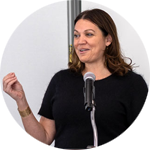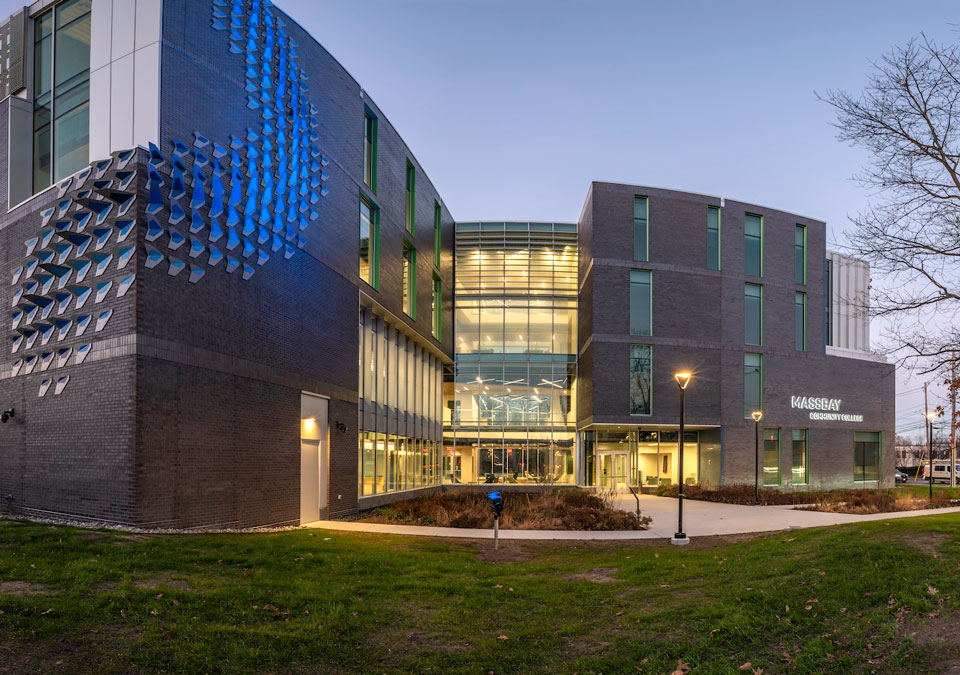Behavioral Health Service Corps℠
Career Ladder Program
Unlock Your Potential with a (Free) Gap Year in Mental Health!
Guaranteed Job Placement and Graduate Credits
Are you a passionate, service-minded individual? Are you interested in a career in
mental health? Take the next step in your professional and educational journey and
join the Behavioral Health Service Corps℠ (BHSC).
We're looking for talented college graduates who desire to work in underserved communities
and make a difference in the lives of others. You'll gain hands-on experience, earn
a salary, and get credit toward your master's degree. The BHSC program is offered
in two locations: BHSC-Massachusetts and BHSC-Rhode Island. Read on to learn more about how this program can shape your career.
Make a Difference
The William James College Behavioral Health Service Corps℠ offers you an introduction
to this important healthcare field and the opportunity to help.
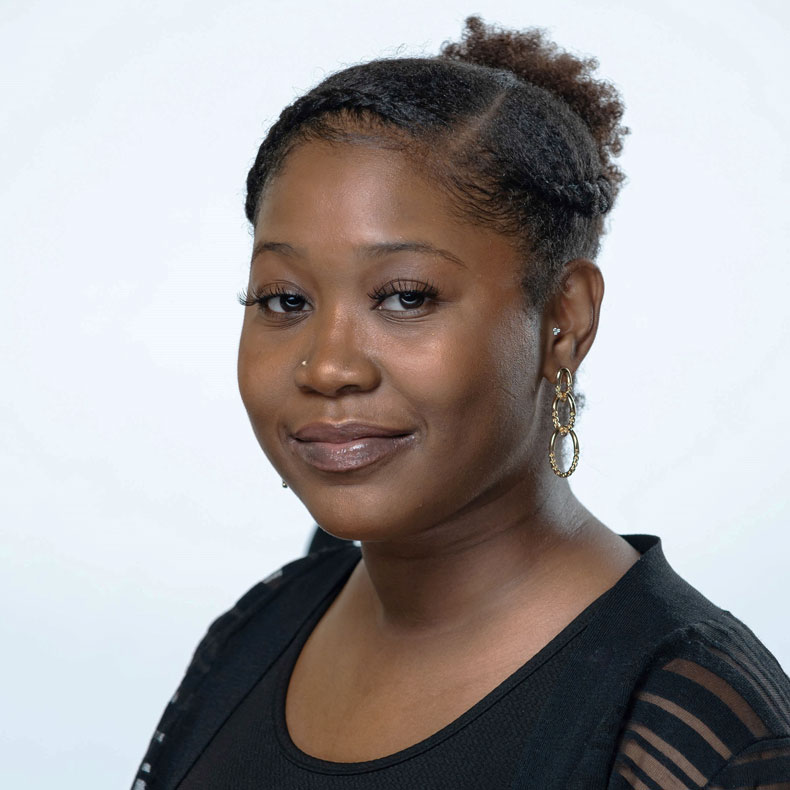 “Being a part of this program has definitely opened my eyes to what the field was
like, but also my place in the field. I really came to this program to strengthen
my clinical skills and to become a well-versed clinician. My previous work has been
very much community service-based so a really big draw to the program was how I am
able to work in communities that are underserved.”
“Being a part of this program has definitely opened my eyes to what the field was
like, but also my place in the field. I really came to this program to strengthen
my clinical skills and to become a well-versed clinician. My previous work has been
very much community service-based so a really big draw to the program was how I am
able to work in communities that are underserved.”
Capryce Browne
Behavioral Health Service Corps℠ Student
Gain Hands-On Experience with a Guaranteed Job
and Earn While You Learn
The Behavioral Health Service Corps℠ (BHSC) is a paid year-long service and learning
opportunity for college graduates, which provides an entry-level job experience in
behavioral healthcare along with credits towards a master's degree in Clinical Mental
Health Counseling. BHSC Students spend the year becoming familiar with the work of
behavioral healthcare, understanding the needs of different populations, and receiving
mentoring in becoming professionals in this field. The mentoring component is provided
by mental health professionals and faculty. In addition, Students engage in a process
of personal introspection that facilitates their personal and professional development.
- Participate in a skills-based orientation training at the start of the program.
- Complete a year-long, full-time placement (i.e., a minimum of 1,600 hours) at a partner agency in a bachelor's level position.
- Earn a full-time salary and benefits while working to support individuals and groups
in historically underserved communities. The program officially begins in August 2026. However, students may begin working at approved partner agencies as soon as they graduate and secure full-time
employment, prior to the official start of the program. Employment start dates may therefore
precede the academic program start date.
- Provide a variety of services to patients, clients, and/or families in settings that
include inpatient units, home-based programs, schools, and residential treatment and
recovery centers, among others.
- Earn up to six free graduate credits taking two courses as non-matriculating students
in the Clinical Mental Health Counseling Master’s program at William James College. Note that employer partners will allow four hours of release time for coursework
and professional development activities.
- Receive group supervision, mentorship, and career counseling support throughout the
year-long experiential training.
Fridays will be reserved for academic training, mentorship, professional development,
and supervisory-related activities. Students will be enrolled in either a morning
or an afternoon cohort.
Morning Cohort: Remote on Zoom every Friday from 9:00 AM – 1:00 PM ET
- Academic Courses: Fall and Spring Semesters (one course in the fall, one course in
the spring)
- Delivered remotely on Zoom every Friday from 9:00 – 11:50 AM ET
- Alternating Professional Development and Group Supervision Activities: Fall and Spring
Semesters
- Delivered remotely via Zoom every Friday from 12:00-12:45 PM ET
Afternoon Cohort: Remote on Zoom every Friday from 1:00 – 5:00 PM ET
- Academic Courses: Fall and Spring Semesters (one course in the fall, one course in
the spring)
- Delivered remotely on Zoom from 2:00 – 4:50 PM ET
- Alternating Professional Development and Group Supervision Activities: Fall and Spring
Semesters
- Delivered remotely on Zoom from 1:00 – 1:45 PM ET
Enroll in two courses at William James College. Courses are designed to complement
and enhance the employment experience and the six credits earned during the service
year can be applied towards a master's degree in Clinical Mental Health Counseling.
Employers allot four hours per week of work release time for BHSC Students to participate
in coursework, didactic training, and professional development activities.
Students work side by-side with behavioral health professionals who have committed
their lives to serving the needs of others, giving students the opportunity to learn
through direct mentoring and also the opportunity to make an impact through their
own work. In addition, Students live and learn in Massachusetts or Rhode Island and
connect with peers who share the same commitment to service.
We're excited to offer two cohorts of the BHSC program every fall.
Hands-on Experience in Mental Health
Graduate Credits
A Pathway into the Field
Paid Opportunities
Hear from our Field Supervisors!
William James College students bring enthusiasm, curiosity and fresh energy which
invigorates our teams. Many bring lived experience, language skills and cultural humility
that strengthen our ability to serve diverse communities, while also receiving additional
training and supervisory support to help navigate the challenges in the field. This
helps with retention and morale and has a positive impact on the overall culture within
our programs.”
Tara Sagor
Senior Director of Training and Development, Justice Resource Institute.
New BHSC Initiative for MassBay Graduates
Funded by MetroWest Health Foundation, the Center for Workforce Development is launching
BHSC–Bridge (also known as “The Bridge Program”), a new Behavioral Health Service
Corps (BHSC) initiative that creates paid career opportunities for graduates of MassBay
Community College while strengthening the behavioral health workforce in Framingham
and the surrounding MetroWest region.
Learn more
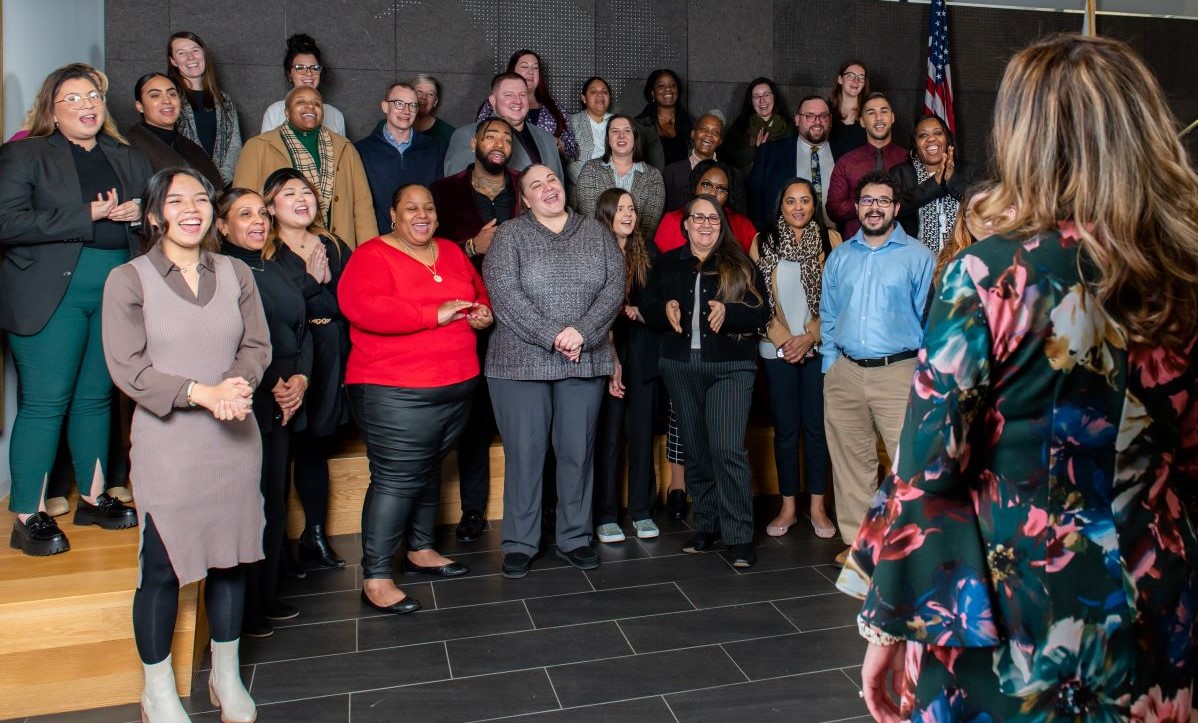
8 Reasons to Take a Gap Year with William James College
The Behavioral Health Service Corps at William James College is a year-long, paid,
service-learning opportunity. If you are considering taking a gap year after your
undergraduate program or are looking for a career change, the BHSC might be the perfect
program for you. Read on to see just some of the reasons to take a gap year with the
Behavioral Health Service Corps.
Read More |
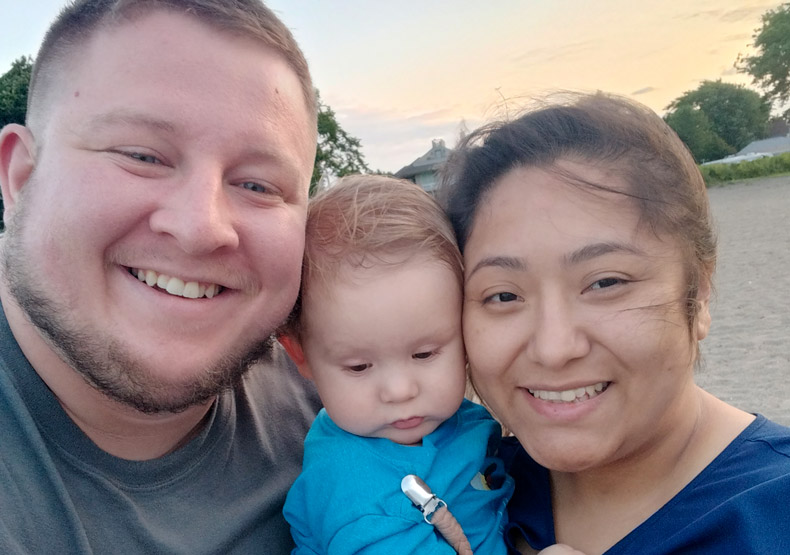
The Unlikeliest of Journeys: William James College Twice Provides a Path Forward for
One Reluctant Student
Prior to landing at William James College, Ryan Duquette’s educational path had been
hectic and messy—not unlike the birth of his first child which, in retrospect, caused
his life’s purpose to snap into sharp focus. “It was not at all a fairy tale experience”
he says of his two biggest accomplishments to date: becoming a father and pursuing
an education, in order to set an example for his young son.
Read more |
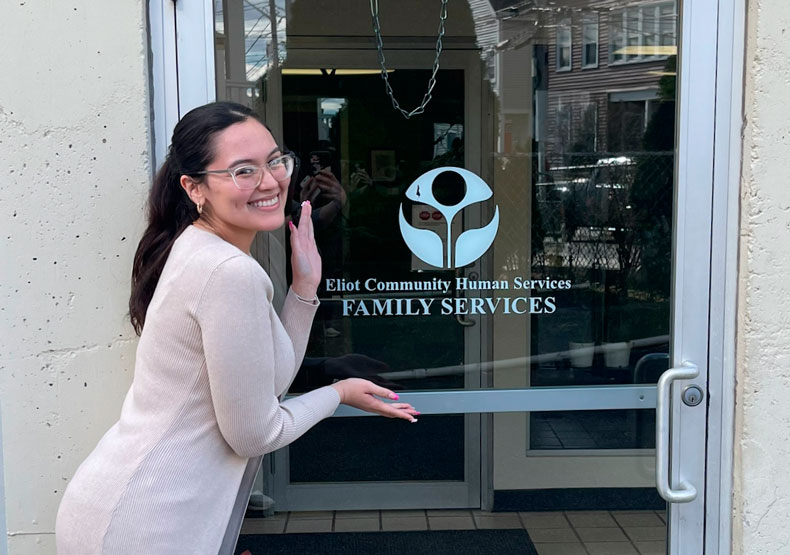
Better Together: BHSC Partners with Eliot Community Human Services to Provide College
Graduates Paid, Hands-On Experience
Growing up, Carolina Jaldin attributes regular exposure to behavioral health services
provided through her school as instrumental in processing some of the trauma she grew
up with. “I can't imagine what my childhood would have looked like without the tools
to comprehend all of what I was feeling,” says Jaldin, a second-generation immigrant,
who was raised by a single mother from Brazil.
Read more |

 “Being a part of this program has definitely opened my eyes to what the field was
like, but also my place in the field. I really came to this program to strengthen
my clinical skills and to become a well-versed clinician. My previous work has been
very much community service-based so a really big draw to the program was how I am
able to work in communities that are underserved.”
“Being a part of this program has definitely opened my eyes to what the field was
like, but also my place in the field. I really came to this program to strengthen
my clinical skills and to become a well-versed clinician. My previous work has been
very much community service-based so a really big draw to the program was how I am
able to work in communities that are underserved.”



